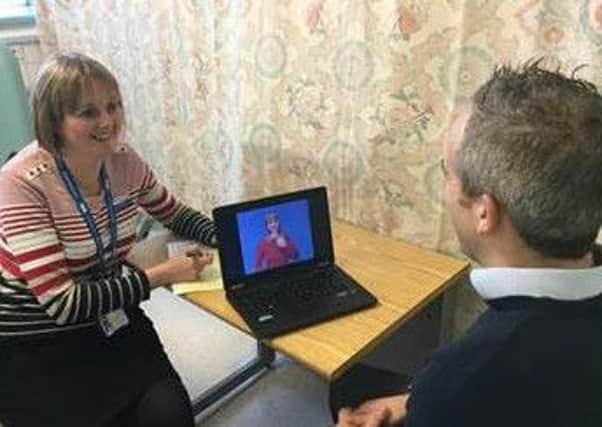Sheffield deaf patients' video service


The Sheffield Teaching Hospitals NHS Foundation Trust will soon be the first in the country to use the British Sign Language (BSL) service on a routine basis, in the same way that telephone interpreting is used for spoken languages.
The service is now being trialled within the trust’s hearing services department ahead of a trust-wide implementation, and feedback has been positive.
Advertisement
Hide AdAdvertisement
Hide AdOver the coming months, the service will be taken up across the Trust so that all of our patients who use BSL can benefit from it.
The service, provided by SignLive, works through a web browser on a computer or a downloaded app on a smart device and allows a direct connection to a qualified BSL interpreter.
It is available as and when it is needed, with connection to an interpreter taking around only 40 seconds.
This means that deaf patients will have speedy access to a signer to help them communicate with hospital staff. It also eliminates the need to book interpreters in advance and means that patient appointments will not have to be cancelled when a face-to-face interpreter is not available.
Advertisement
Hide AdAdvertisement
Hide AdSue Butler, head of patient partnership, said: “We are always striving to improve patient access and experience across the trust.
“This service provides access to qualified, professional BSL interpreters quickly and is particularly helpful when fast access to an interpreter is required to communicate with deaf patients in emergencies.
“It is also fantastic in many other hospital settings and eliminates the need to book face-to-face interpreters in advance.”